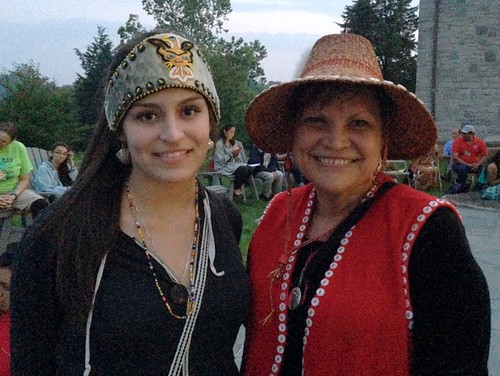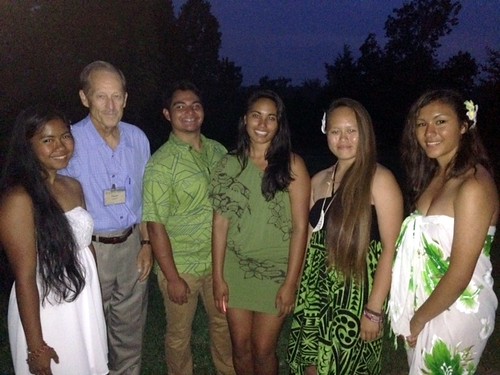
Recently, ninety Alaska Native, American Indian, and Native Hawaiian high school students came together at the National Conservation Training Center in Shepherdstown, West Virginia for a week of intensive education and peer-to-peer training about the impact of climate change on tribal communities. Organized by the Inter-Tribal Youth Climate Leaders Congress and supported by a partnership between the U.S. Forest Service, the Department of Interior’s Bureau of Indian Affairs, U.S. Fish & Wildlife Service, the National Park Service, the U.S. Geological Survey, and the Environmental Protection Agency, the gathering included Jadelynn Akamu, Ylliana Hanato, Alisha Keli’i, and Aaron Knell from Honolulu’s Hawai’i Youth Conservation Corps and Forest Service partner KUPU, as well as a team from Juneau, Alaska, including Alaska Native student Sierra Ezrre and her mentor and culture keeper Carrie Sykes.
These youth leaders made a huge impression on the Forest Service staff, which helped facilitate the training. Michaela Hall in the Forest Service’s Fire and Aviation Management division felt that the “sessions offered an important reminder that learning comes from all sources.” Margeau Valteau in Cooperative Forestry found inspiration in these students, commenting that, “addressing climate change is not only vital for Mother Earth, but for their culture as a whole.” and Mason “Amtchat” Edwards in Conservation Education found that “witnessing these dynamic young people balance their traditional ecological knowledge with the prevailing climate science was powerful. Keep your eyes on this group,” said Edwards. “These leaders have already made themselves known.”
This Congress encapsulated the commitment of the U.S. Forest Service to cultivate diversity among current and future generations of natural resource managers. While contributing to the President’s Priority Agenda – Enhancing Climate Resilience of America’s Natural Resources and Generation Indigenous initiative, the Forest Service is helping young Native people reach their full potential and mobilize the next generation of Native leaders. With their newly acquired tools and knowledge – and their existing enthusiasm and commitment – these youth will return home to work on projects with Forest Service scientists and their communities to address climate adaptation and resilience.



